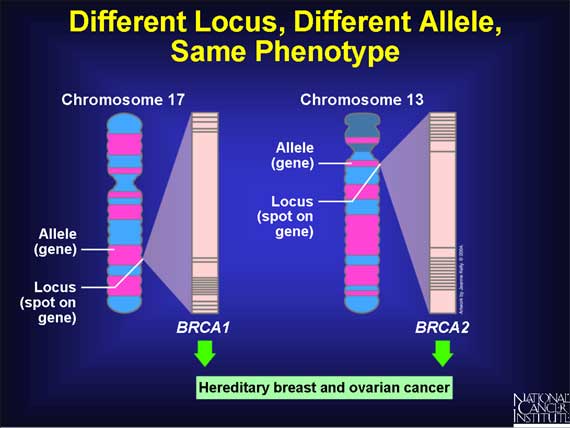Alžjóšleg mišstöš rannsókna į hreyfitauga sjśkdómum International Center for Research on Motor Neuron Diseases ICRon-MND
|
Myriad Genetics CEO Claims He Owns Your Genes.
Birtist fyrst hjį Forbes 13. aprķl 2013.
Steven Salzberg.
With the Supreme Court about to hear a landmark case on gene patents, Myriad Genetics, the company that owns the patents under scrutiny, is going on the offensive. I’ve written about this case before, when the patents were first thrown out by one court, and then restored by another. Now the Supremes will have the final say.Just last week, geneticists Jeffrey Rosenfeld and Chris Mason wrote a commentary for the Washington Post that warned about the consequences of companies owning the rights to our gene sequences.Today, in a letter filled with non sequiturs and distortions, Myriad Genetics’ CEO Peter Meldrum, worried about whether his company will be able to maintain their monopoly on a test for which they charge $4000, responded. Let’s look at his claims.

First, though, let me remind readers that the genes in question, BRCA1 and BRCA2, are linked to an increased risk of breast and ovarian cancer, a risk that was first discovered in 1994 by scientists at the University of Utah. Myriad Genetics owns a patent on these genes, and as I wrote last year:“Thanks to these patents, you can’t look these genes in your own body without paying a fee to Myriad. Sounds ridiculous, right? Well, that was the state of gene patents until last May [2011], when judge Robert Sweet ruled that the Myriad’s patents were invalid.”
Myriad appealed the decision, and the appeals court overturned Judge Sweet, buying into the argument by Myriad’s lawyers that “isolated DNA” is not the same as the natural DNA, and that this distinction allows companies to patent it. This is scientific nonsense for many reasons: for one thing, the process of isolating DNA does not create an artificial molecule. The body’s own cells isolate DNA all the time, in the process of turning it into proteins. But the appeals court accepted the argument, so now the Supreme Court will re-examine this scientifically ridiculous claim.Now let’s look at CEO Meldrum’s letter. He first claims that Myriad’s patents“were essential to developing diagnostic tools that have been used by more than 1 million women to understand their hereditary risks of breast cancer and ovarian cancer.”
This claim is simply false. Myriad’s patents made no contribution at all (and certainly weren’t “essential”) to the diagnostic tools used to detect mutations. I know something about these tools, which I’ve been using in my own research for over 15 years. Furthermore, academic medical centers were offering their own diagnostic tests on the BRCA genes, at a lower cost than Myriad, until Myriad’s lawyers forced them to stop. So Myriad’s patents have increased costs to patients and, if anything, slowed down progress on making the tests faster and cheaper.Second, Meldrum writes:“Were these molecules derived in part from natural material? Sure. But that is true of many patents. Labs routinely turn naturally found molecules into innovative medicines and get patent protection.”
One’s jaw drops at this irrelevant non sequitur. Myriad has never created “innovative medicine” or any other sort of medicine. And the BRCA gene tests are not medicine: they are a diagnostic test that reads your DNA and tells you if you have harmful mutations in two specific genes. Myriad’s patents have nothing to do with medicines that treat breast and ovarian cancer – although it’s clear that Meldrum would like us to think otherwise.Third, Meldrum claims:“Our tests are also accessible; some 95 percent of patients get insurance coverage, and we offer the test for free to those who cannot afford it.”
This too is irrelevant, and also untrue. The fact that 95% of patients have insurance, even if true, has nothing to do with whether or not genes should be patented. And this merely hides the fact that Myriad’s test is outrageously overpriced, at $4000 per patient. The actual costs of testing for this gene should be far lower: we can now sequence an entire genome for $4000, and this test only looks at 2 genes out of more than 20,000.Meldrum also throws out the unproven claim that Myriad offers it for free to those who cannot afford it. Really? Who decides if someone can afford it? If a woman can scrape together the $4000 with great hardship, does Myriad give her a break on the price? I doubt it. And what does this have to do with Myriad’s supposed right to own your genes?Fourth, Meldrum makes the remarkable claim that“Our patents have also promoted additional research; 18,000 scientists have studied the genes, resulting in 10,000 published papers.”
This is just unfounded bragging. Even the most wildly successful scientists would be very careful about claiming that that 10,000 papers have been based on their work. In the case of Myriad, this is just false. If you do a PubMed search for BRCA1, you can indeed find over 9,600 papers, as I did today. However, there is no evidence whatsoever that these papers were even remotely supported by Myriad’s patents. It is far more likely that the patents prevented additional research on the BRCA genes. The vast majority of research on these genes was supported by the public, which in the U.S. means by the National Institutes of Health. Meldrum’s boastful claim is absurd.It’s worth noting that the original paper describing the link between BRCA1 and breast cancer was published by a multi-institutional team from the University of Utah and other places, who were supported by multiple grants from the NIH and from the Canadian government. Myriad Genetics subsequently licensed the patent rights from Utah, and has used them ever since to maintain its monopoly and prevent others from developing tests on the BRCA genes. To claim that its patents promote innovation is pure nonsense.The bottom line is that no one invented your genes, and no private company should be able to tell you that you can’t even read your own DNA. Today, you can get all of your DNA sequenced for less than the cost of the Myriad test. Using free software (developed by my lab), you can scan that DNA for mutations in BRCA1 and BRCA2. And no company should be able to tell you not to.Peter Meldrum’s letter reveals that he doesn’t care very much about the truth. Meldrum made $4.87 million in 2011 as CEO of Myriad, so it’s pretty clear what motivates him. Myriad’s use of its patents to charge exhorbitant prices to women at risk for breast and ovarian cancer does not demonstrate innovation. It just demonstrates greed.
|

